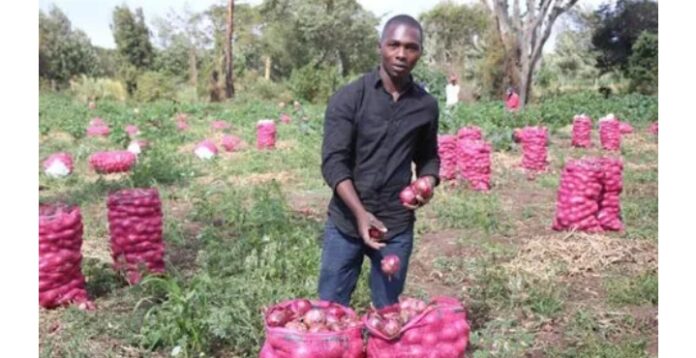As a boy growing up in Naromoru, John Wachuma’s dream was to become a veterinarian after witnessing several dairy cows belonging to his neighbour succumb to diseases.
He felt the vet had not given the livestock much attention and he would do better. He also wanted to be a livestock farmer in the future and had to be prepared to prevent such a loss.
Wachuma passed his 2011 Kenya Certificate of Secondary Education (KCSE) exam and was admitted to Kenyatta University to pursue a degree in animal health and production. He graduated in 2017.
However, even before embarking on his dairy project, Wachuma got attracted to crops last year. “This was after l read a lot on social media how youthful farmers are raking in quick money to the tune of thousands and millions of shillings through crop farming,” he says.
He immediately started collecting information on how to manage crops from newspaper cuttings, the Internet, agricultural materials and expert advice. He even made friends and visited prominent crop farmers in Nanyuki.
“For almost a month during my long holiday, I visited various horticulture farms to acquaint myself with practical knowledge on how to manage the crops,” Wachuma says.
According to the weather patterns in his area at the time, there was going to be a dry spell in the next three months, which usually leads to a shortage of cabbage, hence high demand.
To capitalise on this, Wachuma settled for cabbages and put to use part of family land lying idle close to Ewaso Nyiro River.
Using Sh. 50,000 he had saved from his vet services, he prepared the farm, bought seeds and planted nurseries, before transplanting the seedlings in half an acre open field. His records show he had 3,800 stems of cabbage. Then came the first challenge.
At the time of planting, there was enough rain, but this soon disappeared and everywhere was dry. He says at home, they had an old generator, which his mother had bought to use in farming but later abandoned to pursue other interests.
He spent Sh. 15,000 to buy new pipes and started supplying water to his cabbage farm. After managing the drought, which claimed around 20 young heads of cabbage, entered monkeys.
Wachuma says he would keep vigil of the farm during the day, but monkeys would sneak in at night and devour the cabbages. By the time he harvested, he had lost 50 heads of cabbage.
When he harvested, the demand was high and he sold his 3,750 heads at between Sh.25 and Sh.30 each, making over Sh.100,000. Wachuma then expanded the farm to about five acres and used income from cabbages to invest in onions.
“When l decided to start farming onions, l had read a lot and learnt how to manage them. It was even easier to manage onions than cabbage,” he explains.
Four months later, Wachuma harvested 12.3 tonnes of Grade One and 1. 5 tonnes of Grade Two onions. This time, however, a lot of onions were being harvest and they flooded the market.
Phil Karanja makes Sh. 2.5 million from film in one night
He says he resorted to using a broker and got a fair deal. The broker linked his him to a bulk buyer from Sudan. All the produce were immediately loaded in a container at Sh.30 per kilo.
He says he made slightly over Sh.410,000 from his onions sales. Wachuma now wants to invest more in horticulture. “I am planning to cultivate more acres to grow passion fruits, tomatoes, cucumbers and capsicums,” he says.









